- Our mission is to provide men and women of all ages with the practical skills, education and training needed to excel in their chosen fields. The Phoenix campus thus provides an invaluable and timely service to society by preparing candidates to meet and exceed existing needs in the employment arena. We are totally committed to this objective and to the success of our students.
School Highlights
Everest College-Phoenix served 4,102 students (53% of students were full-time).
Minority enrollment was 67% of the student body (majority Hispanic), which was more than the state average of 61%.
School Overview
Everest College-Phoenix
(AZ) Community College Avg.
Carnegie Classification
Associates Colleges
Baccalaureate / Associates Colleges
Institution Level
Less than 2 yrs
At least 2 but less than 4 years
Institution Control
Private, for profit
Private, for profit
Total Faculty
48 staff
296 staff
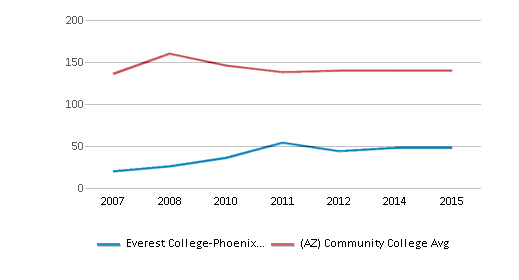
Student Body
Total Enrollment
4,102 students
3,009 students
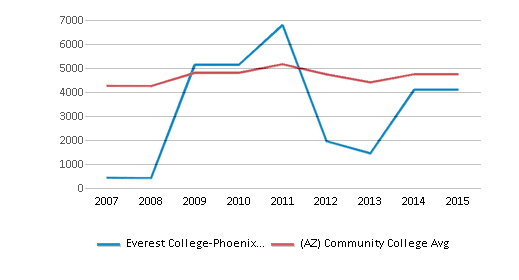
Student : Teacher Ratio
85:1
23:1
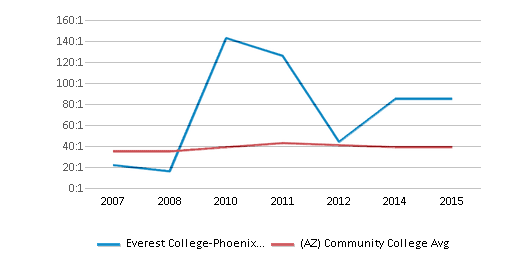
# Full-Time Students
2,154 students
1,238 students
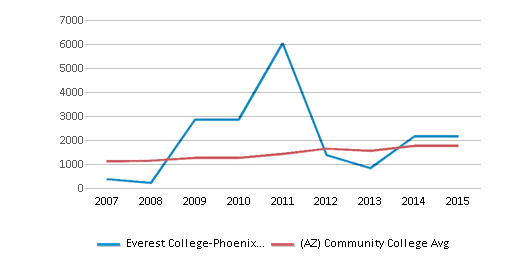
# Part-Time Students
1,948 students
4,184 students
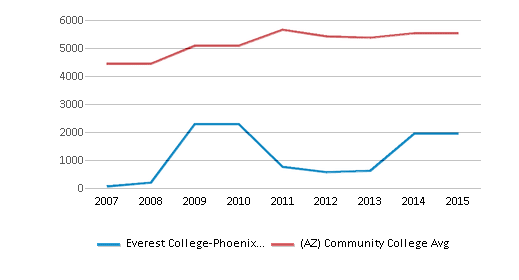
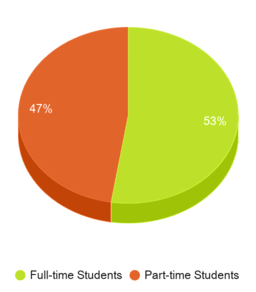
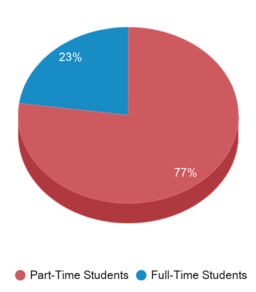
# Enrollment Undergraduate
347 students
339 students
# Full-Time Undergraduate Students
2,154 students
1,238 students
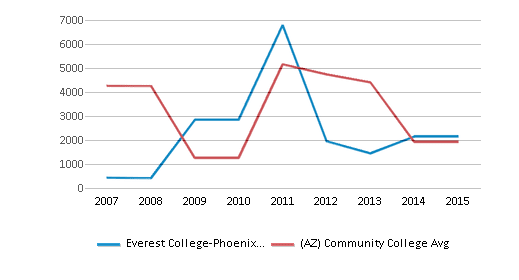
# Full-Time Graduate Students
n/a
66 students
# Part-Time Undergraduate Students
n/a
4,387 students
# Part-Time Graduate Students
n/a
11 students
Total Dormitory Capacity
n/a
250 students
% American Indian/Alaskan
6%
3%
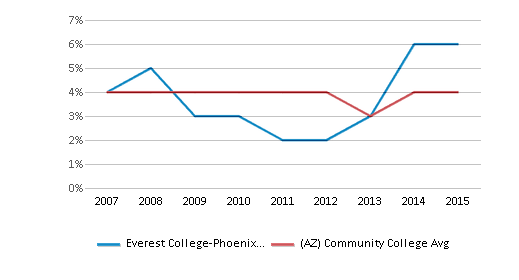
% Asian
1%
4%
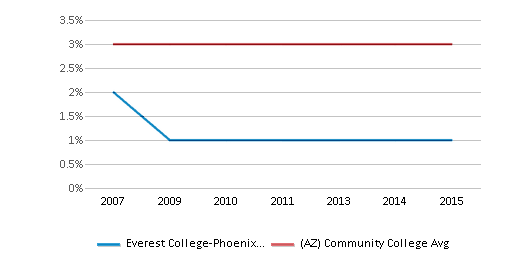
% Hispanic
40%
36%
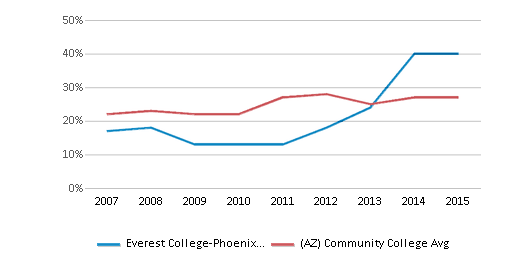
% Black
12%
7%
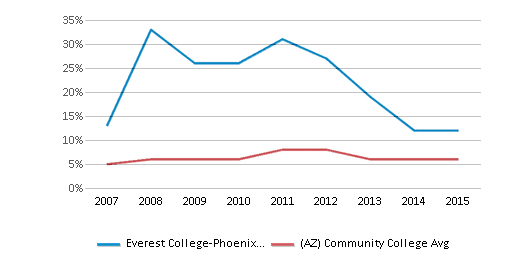
% White
33%
39%
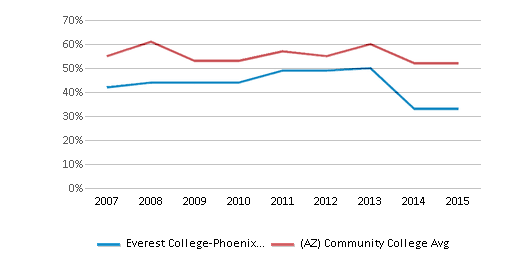
% Hawaiian
2%
2%
% Two or more races
3%
4%
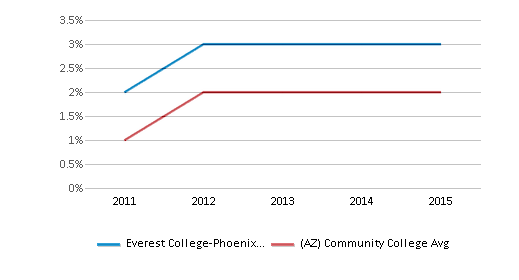
% Non Resident races
n/a
1%
% Unknown races
3%
4%
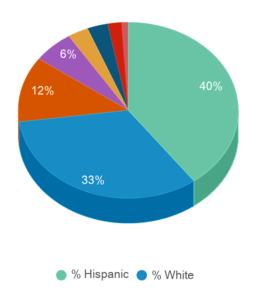
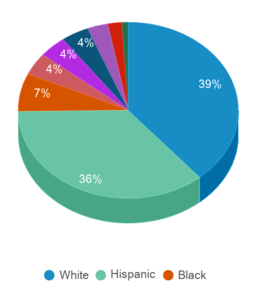
Diversity Score
0.71
0.71
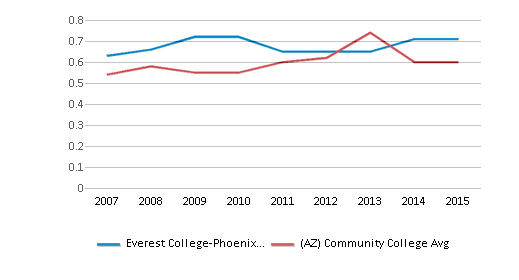
College Completion Rate (Students who graduate in less than 4 years)
n/a
0.4914%
College Completion Rate (Students who graduate in 4 years or more than 4 years)
n/a
0.6%
Average Graduate Earnings (10 Years)
$29,900
$32,900
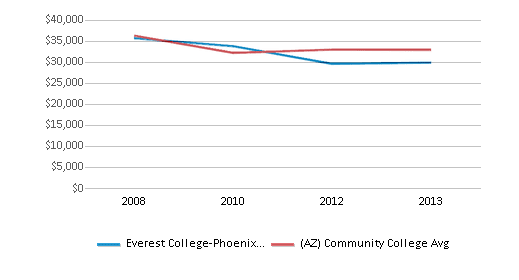
Tuition and Acceptance Rate
Private State Tuition Fees
$12,204
$14,102
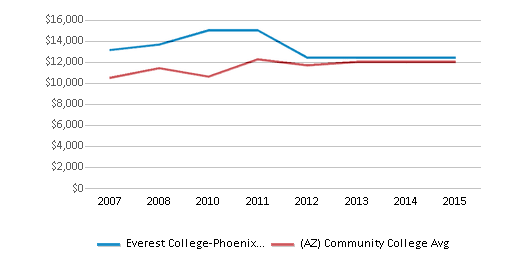
% Students Receiving Some Financial Aid
93%
81%
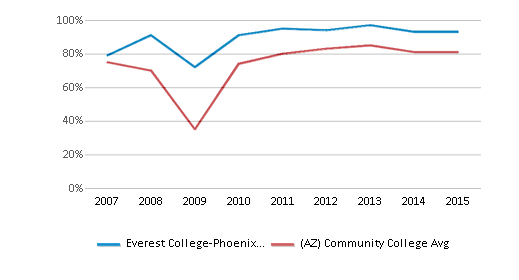
Median Debt for Graduates
$9,500
$9,374
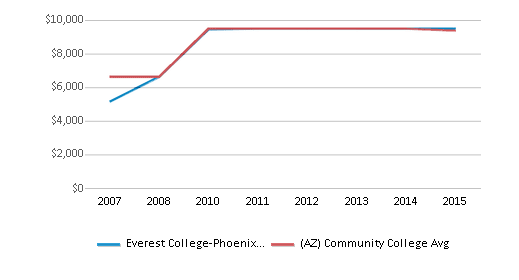
Median Debt for Dropouts
$8,640
$4,750
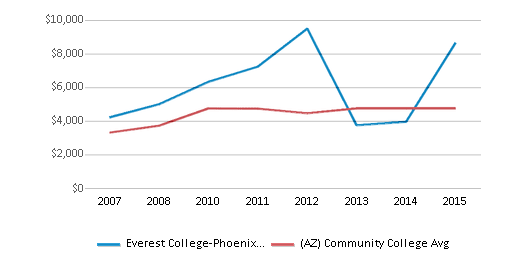
Acceptance Rate
45%
100%
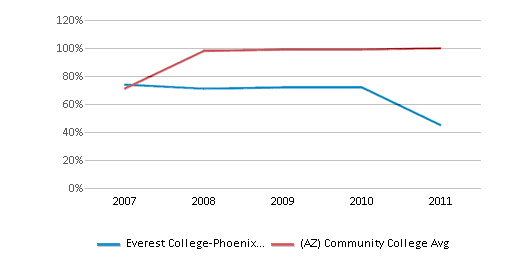
Source: 2015 (or latest year available) Integrated Postsecondary Education Data System (IPEDS)
School Notes
- Everest College opened its doors in 1982 as the Academy of Business College. The original focus of the school was business, however its course offerings soon expanded to include computer, medical and legal curriculums. We have a unique way of providing high-quality instruction and training services to students. Our educational approach involves making you, a vital member of our student body, the number one priority. Specifically, your total academic experience will include important roles as a student, a customer, and a guest, at our school. This school voluntarily undergoes periodic accrediting evaluations by teams of qualified examiners including subject experts and specialists in occupational education and private school administration. Our programs emphasize real-world training that is tailored to meet the needs of potential employers. The fields of study focus on industries that offer solid, long-term career opportunities for graduates. Here at our campus, we maintain a well-defined program philosophy of providing a quality education that emphasizes practical skills; employ a highly skilled and dedicated faculty; and cater to students seeking a strong knowledge base and the experience needed to succeed in their chosen fields.
Frequently Asked Questions
How much does Everest College-Phoenix cost?
Everest College-Phoenix's private state tuition is approximately $12,204.
What is the acceptance rate of Everest College-Phoenix?
The acceptance rate of Everest College-Phoenix is 45%, which is lower than the state average of 100%.
Recent Articles

Obtaining Your Bachelor's Degree at a Community College
Explore the evolving landscape of community colleges offering bachelor's degrees, addressing affordability, accessibility, and workforce needs.

A to Z of Community College Certificates and Courses
From business and healthcare to technology and skilled trades, the article showcases the breadth of options available to students seeking to enhance their knowledge, develop new skills, or pursue career advancement.

What is a Community College?
This comprehensive guide explains what a community college is, its history, and its role in higher education. It covers the types of programs offered, differences from four-year colleges, benefits of attending, and important considerations for prospective students, providing valuable insights for those exploring educational options.





